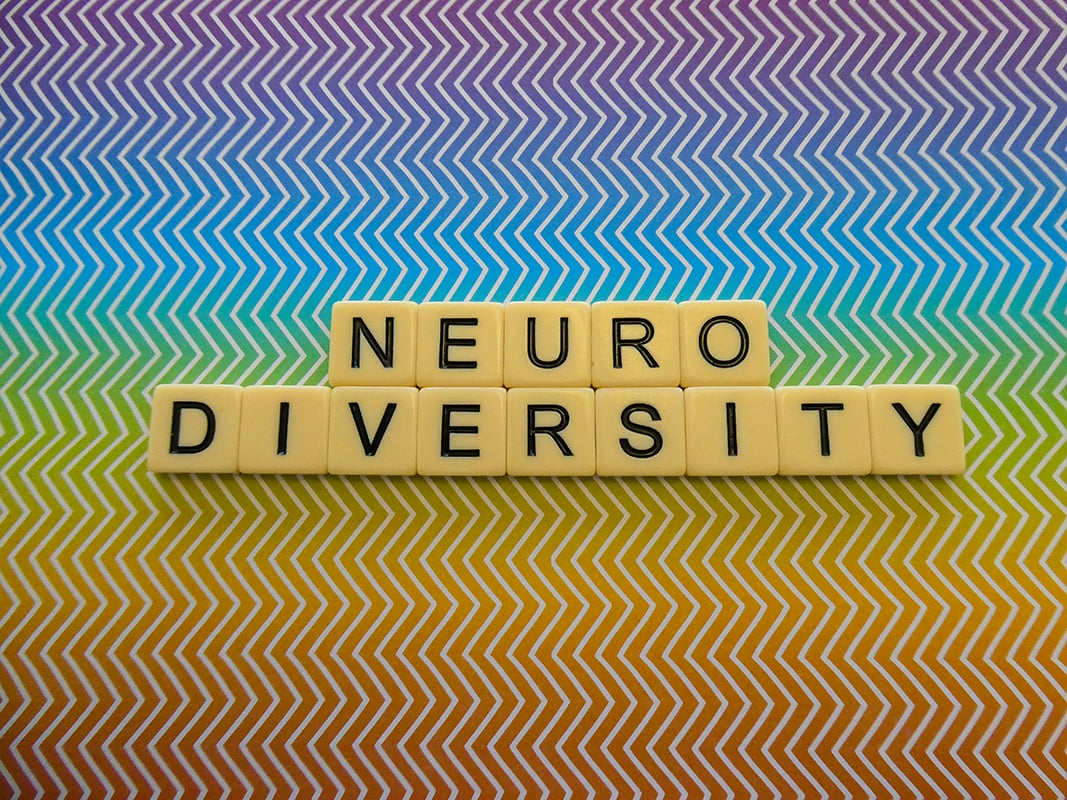BCS members can now join a new specialist group, NeurodiverseIT. It has a broad remit, including promoting the benefits of employing a neurodiverse workforce. Some employers are put off by the cost of workplace adaptions, but tech can help. Claire Penketh reports.
It makes sense that managers want to employ the best person for the job. But what if the applicant has dyslexia, ADHD, or autism? Neurodiversity can make employers nervous.
An Institute of Leadership & Management report in 2020 cited half of managers were uncomfortable with employing neurodiverse people. According to the National Autistic Society, data from the Office for National Statistics (ONS) showed that just 22% of autistic adults are in employment.
The brains of most neurotypical people function and process information in a way that society generally expects. However, around 15 per cent of people in the UK are neurodivergent, meaning they think, learn and processes information differently.
Legally, employers have to make 'reasonable adjustments' so neurodivergent people are not 'substantially disadvantaged' when doing their job.
Tech can help
Technology can make those adjustments both easier and more cost-effective. Matthew Bellringer from the BCS NeurodiversityIT specialist group said: "The adaptations for SEN workers aren't necessarily onerous, particularly where technology is involved. In the last ten years, the availability of assistive technology has improved greatly. Many tools, such as speech-to-text, are built into modern devices as standard."
He added: "Many of the tools used regularly by all IT users were developed because people experienced a particular problem, and those solutions can work for all employees."
Different strengths
Neurodiversity conditions vary and can also overlap. There is no one size fits all when it comes to making adaptions for neurodiverse people, says Matthew: "Everyone who is neurodivergent is different. Even though they have a specific diagnosis, they might experience things in very different ways."
"Neurodivergent people often find incidental aspects of their workplace difficult. These unseen barriers prevent people from being able to make their full contribution at work."
For you
Be part of something bigger, join BCS, The Chartered Institute for IT.
For example, the intricate, detailed, focused work many autistic people excel in can be challenging to do in the wrong environment, like a noisy office. In which case, they may find digital remote working much easier.
People with ADHD could find task manager apps helpful to structure and schedule their abundant and creative ideas.
Other adjustments can involve changing the recruitment process – a quickfire timed quiz wouldn't be appropriate for a person with dyslexia. Or, when interviewing someone who is autistic, be aware that casual chat is a difficulty, not a failure.
Assessments
Not all neurodivergent people have had a professional external assessment. Young people aged under 18, however, might have had an evaluation through their schools and colleges and had learning strategies put in place.
Such needs assessments provide recommendations for technology and skills development and cost between £400 to £1500. Matthew adds: "If the firm wants to pay for an external assessment, they are more likely to know quickly what works and what doesn't. But that's got to be a decision for the organisation, and whether they feel they have the resource to pay for that. They might instead try a range of different approaches themselves first."
Lived experience
Neurodivergent people have some unique strengths, such as being good a problem-solving, seeing the bigger picture or hyper-focusing.
Employers can benefit from listening to the experiences of neurodivergent people themselves because they have often developed strategies. For instance, people with dyslexia might ask for someone to double-check their report, which is good practice anyway.
Top-down support
However, it needs buy-in across the business, especially from the top. Some people can be nervous about revealing they are different from the norm. What would help, said Matthew, would be if more senior managers talked about their own neurodiversity: "Being open about being neurodivergent is a very challenging thing to do. But if it's too hard for senior people in the organisation, it's definitely going to be too difficult for those who are more junior.
"If a manager does feel awkward and doesn't feel able to share publicly within the organisation, it's a good indicator that there's some work to be done."
Matthew has one clear piece of advice: "Don't be afraid of employing neurodivergent people. Whilst there might be some costs involved, the benefits outweigh them many times over."
Ultimately it is about the people and culture of the workforce. A culture that embraces all forms of diversity enables everyone in the organisation to do the brilliant work they are capable of and support others to do the same.

















